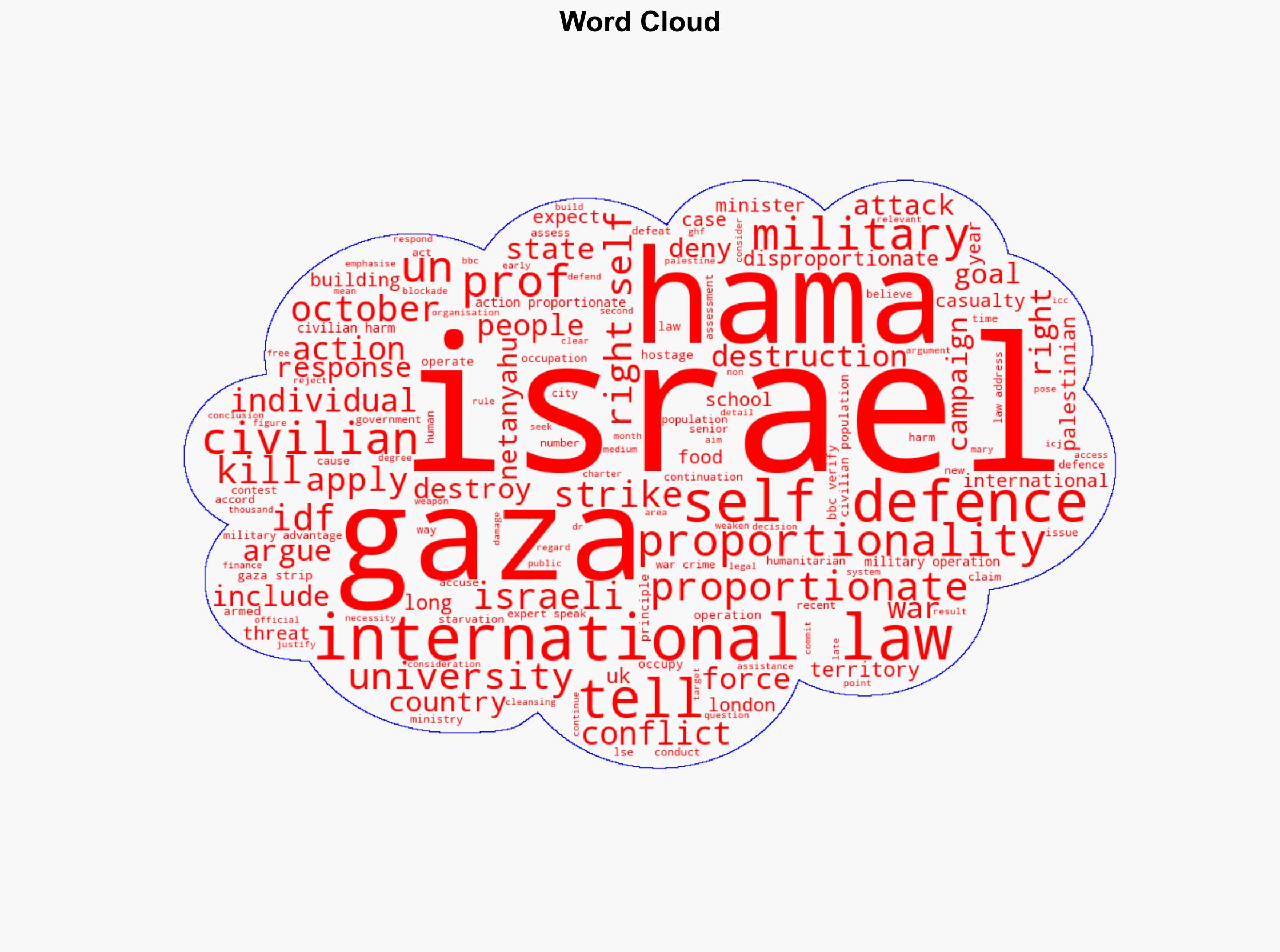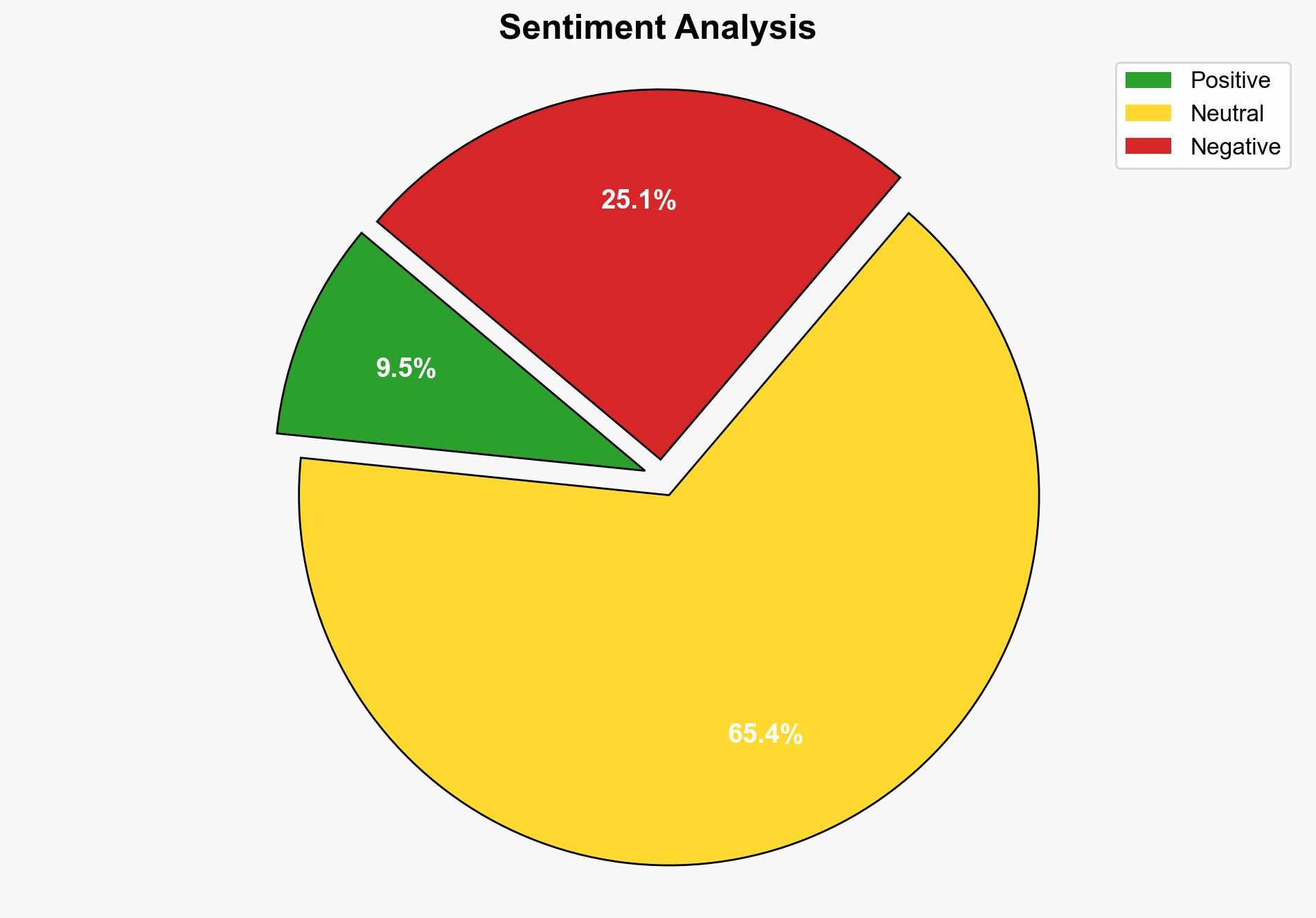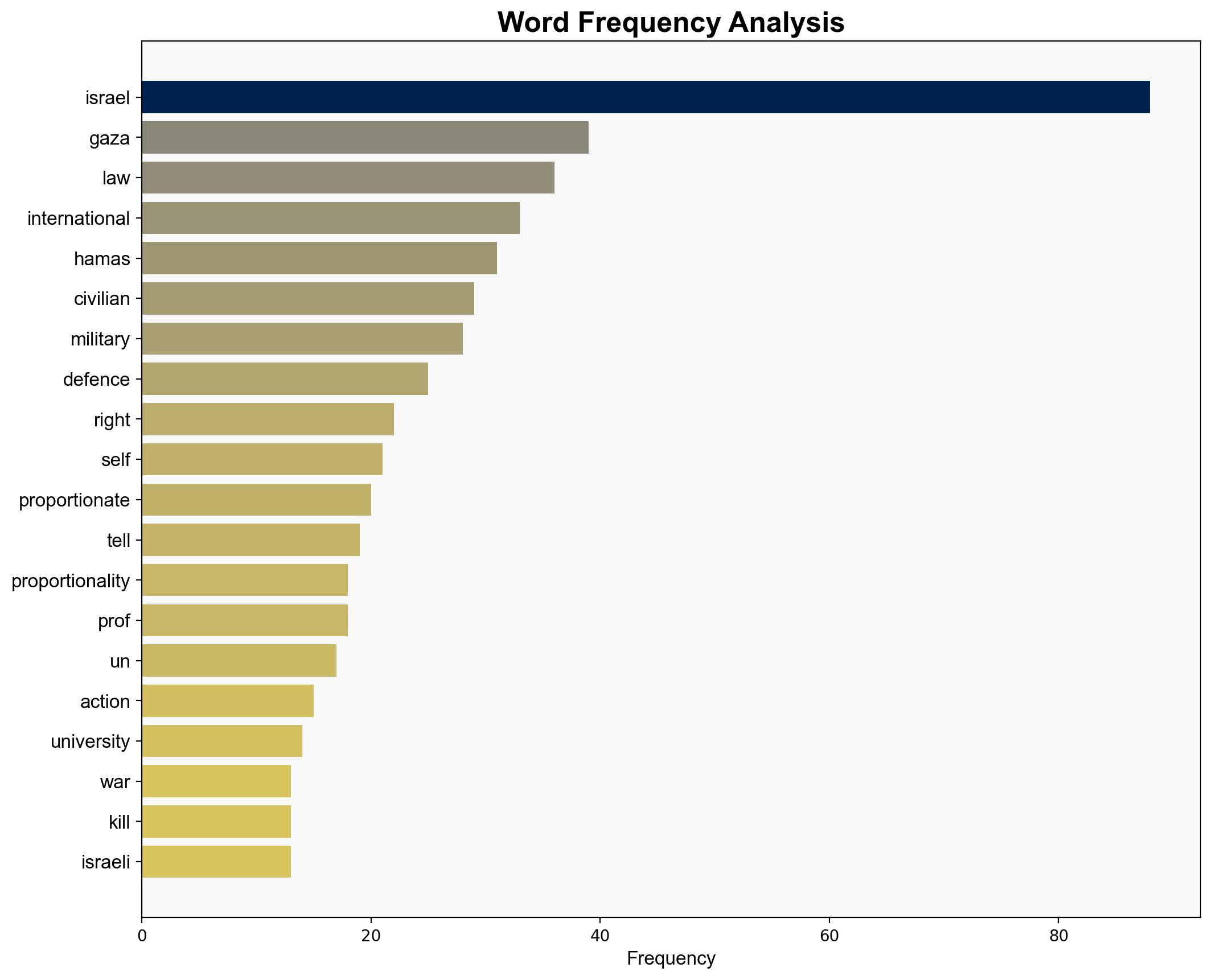Ros Atkins on Israel’s war in Gaza and proportionality – BBC News
Published on: 2025-09-12
Intelligence Report: Ros Atkins on Israel’s war in Gaza and proportionality – BBC News
1. BLUF (Bottom Line Up Front)
The analysis suggests that the hypothesis asserting Israel’s military actions in Gaza are proportionate to the threat posed by Hamas is marginally better supported. However, the confidence level is moderate due to significant debate among international law experts and the complex nature of proportionality in warfare. It is recommended to closely monitor international reactions and potential shifts in geopolitical alliances, as well as to prepare for possible escalations in regional tensions.
2. Competing Hypotheses
1. **Hypothesis A**: Israel’s military operations in Gaza are proportionate to the threat posed by Hamas, aligning with international law standards on self-defense and proportionality.
2. **Hypothesis B**: Israel’s military operations are disproportionate, violating international law principles, and potentially constituting war crimes or crimes against humanity.
Using the Analysis of Competing Hypotheses (ACH) 2.0, Hypothesis A is supported by the argument that Israel’s actions are a response to a significant threat from Hamas, as evidenced by the attacks in October. Hypothesis B is supported by the high civilian casualties and destruction reported, which some experts argue exceed what is necessary for military advantage.
3. Key Assumptions and Red Flags
– **Assumptions**: Hypothesis A assumes that the threat from Hamas justifies extensive military operations. Hypothesis B assumes that civilian casualties inherently indicate disproportionality.
– **Red Flags**: The lack of a clear, universally accepted standard for proportionality in international law creates room for subjective interpretation. The potential bias of sources and experts, depending on their geopolitical stance, is a concern.
– **Blind Spots**: The report does not account for potential undisclosed military intelligence that could justify or condemn the actions.
4. Implications and Strategic Risks
The ongoing conflict could lead to increased regional instability, affecting global economic markets, particularly in energy sectors. There is a risk of cyber retaliation from state or non-state actors sympathetic to either side. Geopolitically, the situation could strain Israel’s relations with Western allies and bolster support for Hamas among certain Middle Eastern nations, potentially escalating into broader regional conflict.
5. Recommendations and Outlook
- Engage in diplomatic efforts to de-escalate tensions and promote dialogue between conflicting parties.
- Enhance intelligence gathering to better assess the proportionality of military actions and anticipate potential escalations.
- Scenario Projections:
- **Best Case**: A ceasefire is negotiated, reducing immediate tensions and civilian casualties.
- **Worst Case**: Escalation into a broader regional conflict involving multiple state actors.
- **Most Likely**: Continued military operations with intermittent international diplomatic interventions.
6. Key Individuals and Entities
– Benjamin Netanyahu
– United Nations Human Rights Body
– International Committee of the Red Cross
– Janina Dill, Maria Varaki, Yuval Shany, Asa Kasher
7. Thematic Tags
national security threats, international law, military ethics, regional focus





